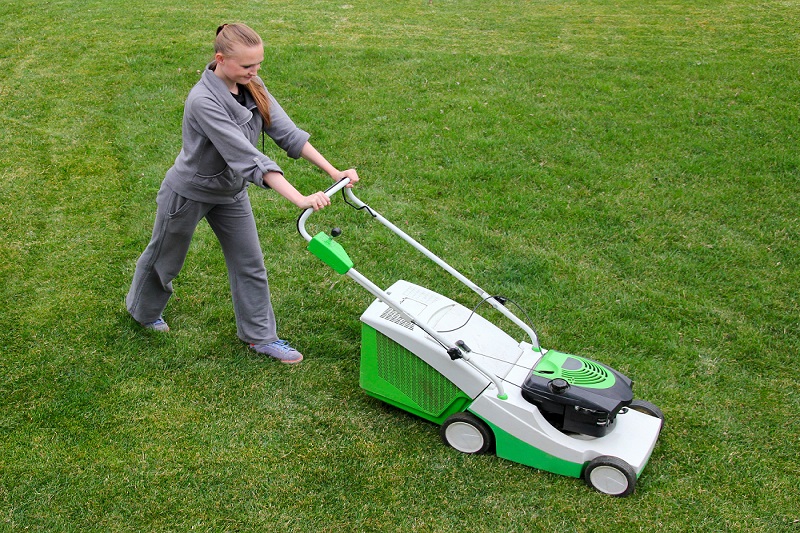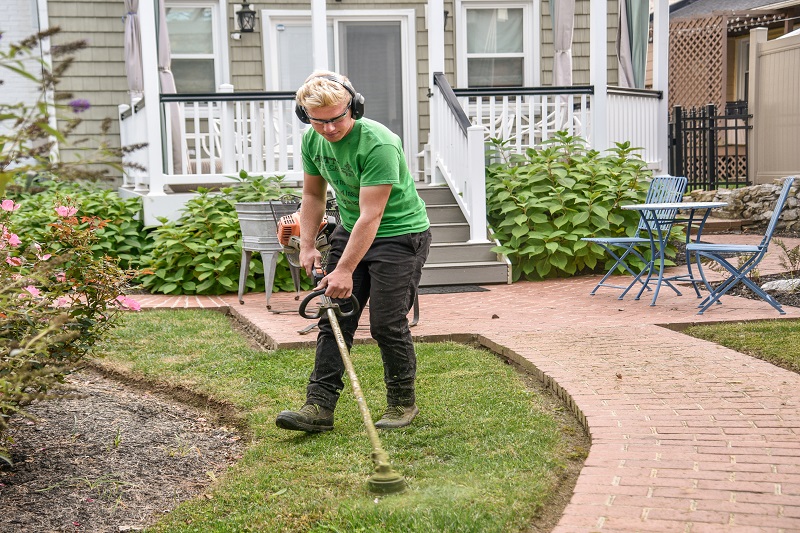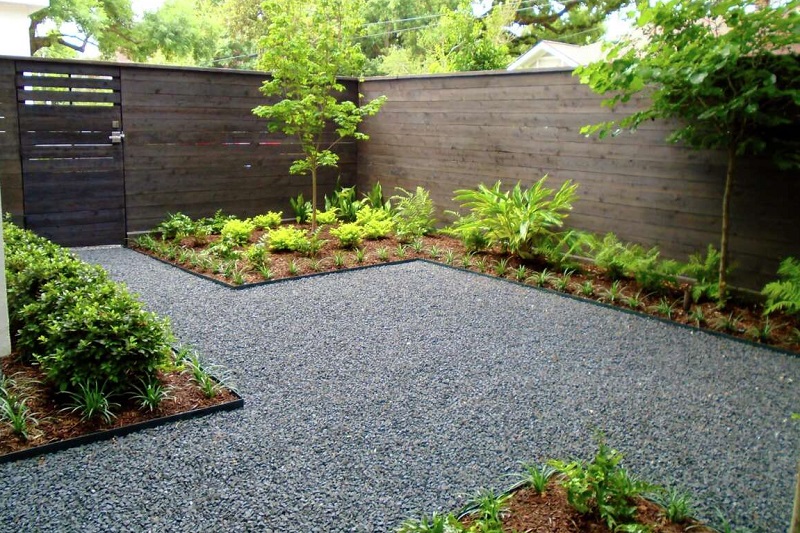
Gardening can be a rewarding and therapeutic hobby, but it can also be overwhelming for beginners and experienced gardeners alike. With so many factors to consider, such as soil health, plant selection, and pest control, it’s easy to feel lost in the world of garden maintenance. That’s why we’ve gathered expert tips to help you keep your garden looking its best all year round. In this article, we’ll cover essential aspects of garden maintenance, from lawn care and pruning to watering and weed control. So, let’s get started on creating a beautiful and healthy garden you can be proud of.
Garden Planning and Organization
A well-planned and organized garden is easier to maintain and more enjoyable to spend time in. Here are some expert tips to help you plan and organize your garden:
– Assess your garden’s size, shape, and sun exposure to determine the best layout and plant selection.
– Choose plants that are well-suited to your climate and soil type.
– Group plants with similar water, sunlight, and soil requirements together to make maintenance easier.
– Create a garden maintenance schedule to keep track of tasks like watering, pruning, and fertilizing.
– Use garden markers or labels to help you remember plant names and care requirements.
Lawn Care and Maintenance
A healthy, well-maintained lawn can greatly enhance the appearance of your garden. Follow these expert tips for optimal lawn care:
– Mow your lawn regularly, but avoid cutting the grass too short, as this can weaken it and make it more susceptible to weeds and pests.
– Aerate your lawn at least once a year to improve air circulation and water penetration.
– Fertilize your lawn with a slow-release, organic fertilizer to promote healthy growth.
– Water your lawn deeply and infrequently, rather than shallowly and frequently, to encourage deep root growth.
– Remove any weeds from your lawn as soon as you spot them, to prevent them from spreading.

Pruning and Trimming
Pruning and trimming are essential for maintaining plant health and encouraging growth. Here are some expert tips for proper pruning and trimming:
– Prune deciduous trees and shrubs in late winter or early spring, before new growth begins.
– Prune evergreen trees and shrubs in late spring or early summer, after new growth has started.
– Always use sharp, clean pruning tools to prevent the spread of diseases.
– Remove dead, damaged, or diseased branches first, followed by any branches that are crossing or rubbing against each other.
– Trim hedges and bushes regularly to maintain their shape and promote dense growth.
Watering and Irrigation
Proper watering is crucial for maintaining a healthy garden. Here are some expert tips for effective watering and irrigation:
– Water your garden in the early morning or late evening to minimize evaporation.
– Use a soaker hose or drip irrigation system to deliver water directly to the roots of your plants, reducing water waste and preventing the spread of diseases.
– Water your plants deeply and infrequently, rather than shallowly and frequently, to encourage deep root growth.
– Adjust your watering schedule based on weather conditions and the needs of your plants.
– Collect rainwater in barrels or buckets to use for watering your garden, conserving water and saving money.
Soil Health and Fertilization
Healthy soil is the foundation of a thriving garden. Here are some expert tips for maintaining soil health and proper fertilization:
– Test your soil regularly to determine its pH and nutrient levels, and amend it as needed.
– Add organic matter, such as compost or well-rotted manure, to improve soil structure and fertility.
– Use organic, slow-release fertilizers to provide your plants with the nutrients they need without harming the environment.
– Rotate your crops to prevent nutrient depletion and the buildup of pests and diseases in the soil.
– Practice no-till gardening to preserve soil structure and reduce erosion.
Weed Control and Mulching
Weeds can quickly take over your garden if left unchecked. Here are some expert tips for effective weed control and mulching:
– Remove weeds by hand or with a hoe, making sure to remove the entire root system to prevent regrowth.
– Apply a layer of organic mulch, such as wood chips or straw, around your plants to suppress weed growth and conserve moisture.
– Use landscape fabric or plastic sheeting to create a barrier between the soil and mulch, further inhibiting weed growth.
– Avoid using chemical herbicides, as they can harm beneficial insects and pollinators.
Pest and Disease Control
Pests and diseases can wreak havoc on your garden if not properly managed. Here are some expert tips for effective pest and disease control:
– Inspect your plants regularly for signs of pests and diseases, and take action as soon as you spot a problem.
– Use organic, environmentally-friendly pest control methods, such as introducing beneficial insects or using insecticidal soap.
– Remove and destroy any diseased plant material to prevent the spread of diseases.
– Practice good garden hygiene, such as cleaning your tools and removing plant debris, to minimize the risk of pests and diseases.

Garden Tools and Equipment
Having the right tools and equipment can make garden maintenance much easier. Here are some expert tips for choosing and maintaining your garden tools:
– Invest in high-quality tools that are comfortable to use and built to last.
– Keep your tools clean and sharp to ensure their effectiveness and prevent the spread of diseases.
– Store your tools in a dry, protected location to prevent rust and damage.
– Consider using battery-powered or electric tools to reduce noise and air pollution.
Seasonal Garden Care
Garden maintenance tasks vary throughout the year, so it’s essential to be prepared for each season. Here are some expert tips for seasonal garden care:
– Spring: Clean up any debris from winter, prepare your soil, and plant new seeds and seedlings.
– Summer: Water your plants consistently, maintain your lawn, and harvest your fruits and vegetables.
– Fall: Rake and compost fallen leaves, plant bulbs and perennials for next year, and prepare your garden for winter.
– Winter: Protect your plants from frost, prune trees and shrubs, and plan your garden for the upcoming year.
Benefits of Regular Garden Maintenance
Regular garden maintenance offers numerous benefits, including:
– Improved plant health and growth
– Enhanced garden appearance
– Increased yield from fruits and vegetables
– Reduced risk of pests and diseases
– Increased enjoyment and satisfaction from your garden
Conclusion
Garden maintenance may seem like a daunting task, but with the right knowledge and tools, it can be an enjoyable and rewarding experience. By following these expert tips, you can create a beautiful, healthy garden that you can enjoy all year round. So, don’t be afraid to get your hands dirty and start cultivating your green thumb today!





